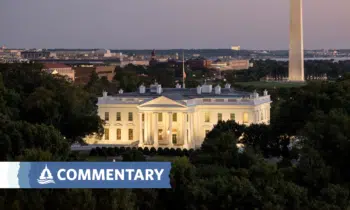 Days after taking office, President Trump summarily removed 18 Inspectors General, including some he appointed during his first term. These dismissals removed the principal watchdogs from most major federal agencies, including Defense, Interior, EPA, Agriculture, Labor, Health & Human Services, and Veterans Affairs.
Days after taking office, President Trump summarily removed 18 Inspectors General, including some he appointed during his first term. These dismissals removed the principal watchdogs from most major federal agencies, including Defense, Interior, EPA, Agriculture, Labor, Health & Human Services, and Veterans Affairs.
While many of the 74 total “IGs,” most at small agencies, remain in place, the message is clear. Any IG who issues a report that displeases the Trump White House risks immediate termination.
Several of these deposed IGs are suing to get their jobs back, citing Trump’s violation of statutory requirements for notice to Congress and a statement of cause. Regardless of the suit’s outcome, the IGs institutional role of protecting whistleblowers and exposing wrongdoing has already suffered damage.
IGs are already showing reluctance to open probes into subjects involving Trump’s political allies, such as fossil fuel interests or industrial-scale irrigators. The federal employees who raise these concerns can no longer expect validation from these watchdogs.
In addition, if these IGs are replaced with Trump loyalists, as seems to be the pattern for all Trump appointees, the IGs can go from passive to prosecutorial in an instant. Federal employees now have reason for concern about the confidentiality of information shared with the IG.
The ultimate concern is that these sentinels of public integrity will be transformed into “plumbers’ units” to identify whistleblowers and silence them.
One of the ironies is that many of Trump’s fiscal plans revolve around rooting out “waste and fraud.” Without aggressive and independent IGs, that task will become infinitely more difficult. Further, in seeking to defend the Trump administration, a new generation of “loyal” IGs would make it more difficult to identify problems as they unfold.
Unlike other federal agencies, IGs do not exercise executive power. An IG has no authority to compel an agency to act on any recommendation, no matter how urgent or how scathing the report issued.
Nonetheless, the role of the IG requires political independence to function properly. That independence is now irretrievably lost.
Created by legislation signed by President Carter 47 years ago and expanded under President Reagan, the institution of the Inspector General has earned bipartisan support and deference – until now. Trump’s actions underscore the now inescapable fact that IGs can no longer be expected to exercise independent judgment if these offices remain within the Executive Branch.
 Jeff Ruch is the former Executive Director and Pacific Director of PEER. He now serves as Of Counsel.
Jeff Ruch is the former Executive Director and Pacific Director of PEER. He now serves as Of Counsel.